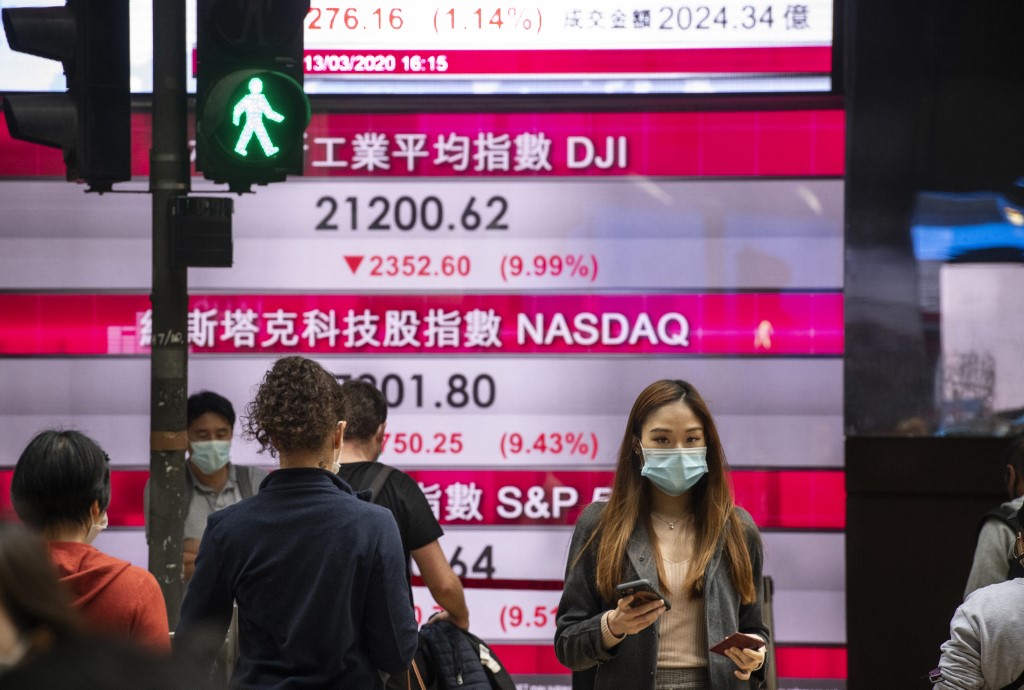Asia’s traders were in downbeat mood on Friday after another wave of losses on Wall Street with investors preoccupied by the Federal Reserve’s plans to ramp up interest rates, while oil prices sank from their seven-year highs.
Fears about the Fed’s determination to fight surging inflation by removing its ultra-loose monetary policy has hauled back markets that have rallied virtually uninterrupted for nearly two years, leaving most markets in the red at the start of 2022.
Officials have started tapering the massive bond-buying put in place at the start of the coronavirus pandemic and it is widely expected they will start lifting borrowing costs from March, though by how much is a matter of speculation.
The Fed has also said it will begin offloading the bonds it already has on its books, which have been key in helping keep rates low, though it is not clear how quickly it will do that.
Also on AF: US Fed Touts CBDC Benefits as Russia Calls for Broad Ban on Crypto
Markets are now awaiting the Fed board’s meeting next week, hoping it will provide a clear idea about its timetable for policy normalisation.
But with key officials now in a black-out period ahead of the gathering, there is little information for investors to work with, fuelling uncertainty and volatility.
Wall Street’s three main indexes closed deep in negative territory again – having spent much of the day well up – with tech firms again the big losers, owing to their susceptibility to higher rates.
Adding to the selling was data showing a pick-up in US jobless claims and a far-weaker-than-expected reading on a key manufacturing index, which all suggest that while the Omicron Covid variant is less severe than feared, it is still causing concern.
Traders are also keeping a nervous eye on Ukraine, where Russia’s troop build-up is fanning fears Moscow is planning an invasion.
And, having enjoyed a healthy run-up on Thursday on the back of further easing measures by China, Asian equities followed suit.
Oil Market Drops
Sydney lost more than 2%, while Wellington and Taipei were more than 1% down. Tokyo, Shanghai, Seoul, Singapore and Mumbai were also off. However, Hong Kong managed to eke out a small gain at the end thanks to late bargain-buying, while Manila and Jakarta also rose. London, Paris and Frankfurt opened sharply lower.
The benchmark Nikkei 225 fell 0.9% or 250.67 points to end at 27,522.26, while the broader Topix index shed 0.59% or 11.35 points to 1,927.18.
The Hang Seng Index inched up 0.05%, or 13.20 points, to 24,965.55. The Shanghai Composite Index shed 0.91%, or 32.49 points, to 3,522.57, while the Shenzhen Composite Index on China’s second exchange sank 1.32%, or 32.04 points, to 2,387.65.
The sell-off in equities was matched by sharp drops in the oil market, with both contracts down more than 1% after data showed US stockpiles at an eight-week high with gasoline supplies beating forecasts.
The losses come after Brent and WTI hit peaks not seen since 2014 owing to optimism about the global recovery and demand outlook.
However, analysts still expect further gains, with Morgan Stanley joining Goldman Sachs in predicting $100 a barrel in the third quarter.
Key figures around 0820 GMT
Tokyo > Nikkei 225: DOWN 0.9% at 27,522.26 (close)
Hong Kong > Hang Seng Index: UP 0.1% at 24,965.55 (close)
Shanghai > Composite: DOWN 0.9% at 3,522.57 (close)
London > FTSE 100: DOWN 1.2% at 7,494.63
New York > Dow: DOWN 0.9% at 34,715.39 (close)
- AFP with additional editing by Sean O’Meara
Read more:
Hang Seng Index Owner Grants Licence for China ETF
OPEC’s Share of Indian Oil Imports At Lowest in 13 Years
























